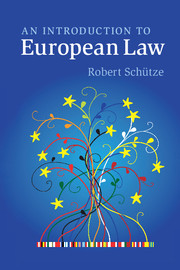Book contents
- Frontmatter
- Summary Contents
- Contents
- List of Illustrations
- List of Tables
- Acknowledgements
- Table of Cases
- Abbreviations
- Introduction
- Part I European Law: Creation
- Part II European Law: Enforcement
- Part III European Law: Substance
- 9 Internal market: goods
- 10 Internal market: persons
- 11 Competition law: cartels
- 12 Competition law: abuse
- Index
- References
12 - Competition law: abuse
from Part III - European Law: Substance
- Frontmatter
- Summary Contents
- Contents
- List of Illustrations
- List of Tables
- Acknowledgements
- Table of Cases
- Abbreviations
- Introduction
- Part I European Law: Creation
- Part II European Law: Enforcement
- Part III European Law: Substance
- 9 Internal market: goods
- 10 Internal market: persons
- 11 Competition law: cartels
- 12 Competition law: abuse
- Index
- References
Summary
Introduction
The second pillar of European competition law focuses – in principle – on the behaviour of a single undertaking. Article 102 does not require the collusive behaviour of two or more economic actors. It can sanction the unilateral behaviour of a dominant undertaking where this behaviour amounts to a “market abuse”. The provision states:
Any abuse by one or more undertakings of a dominant position within the internal market or in a substantial part of it shall be prohibited as incompatible with the internal market in so far as it may affect trade between Member States.
Such abuse may, in particular, consist in:
(a) directly or indirectly imposing unfair purchase or selling prices or other unfair trading conditions;
(b) limiting production, markets or technical development to the prejudice of consumers;
(c) applying dissimilar conditions to equivalent transactions with other trading parties, thereby placing them at a competitive disadvantage;
(d) making the conclusion of contracts subject to acceptance by the other parties of supplementary obligations which, by their nature or according to commercial usage, have no connection with the subject of such contracts.
The provision encapsulates a number of fundamental choices with regard to the European economic constitution. For by concentrating on a “dominant position within the internal market,” Article 102 goes beyond penalizing pure monopolies. In that respect it is wider than its American counterpart. But by insisting on market abuse, it is narrower than the American prohibition. For unlike the latter, Article 102 will not directly outlaw distorted market structures. Dominance is not itself prohibited – only the abuse of a dominant position. Once this abuse is however established it appears to be prohibited as such. For Article 102 has – unlike Article 101 – no “third paragraph” exempting abusive behaviour on the ground of its pro-competitive effects. However, like Article 101, the prohibition of market abuse will only apply where the abusive behaviour “may affect trade between Member States”. This jurisdictional condition indeed defines the scope of all European competition law.
- Type
- Chapter
- Information
- An Introduction to European Law , pp. 281 - 301Publisher: Cambridge University PressPrint publication year: 2012



